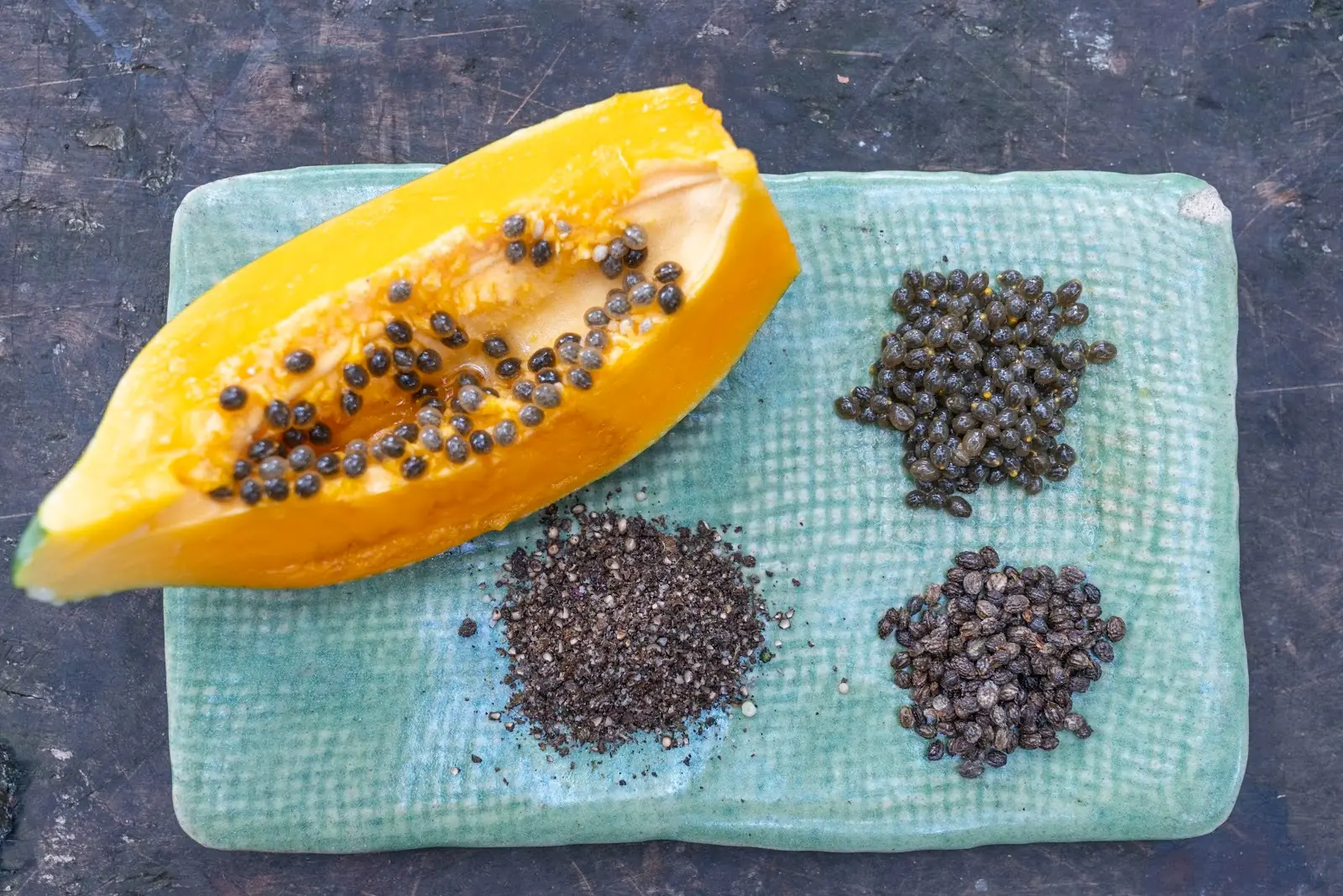
How Water Fasting Can Regenerate the Immune System, Slow Aging, Reduce Heart Attack Risk and More

Water fasting involves abstaining from all food and consuming only water for a designated period. While it may seem extreme at first glance, water fasting—when done correctly—can offer a wide range of health benefits. Fasting for one, two, or even several days may aid in weight loss, support immune regeneration, and potentially slow down the aging process. However, it’s essential to follow the right protocols to ensure the fast is both safe and effective.
Although fasting for just 2 or 3 days can provide noticeable results, it’s not suitable for everyone. Water fasting can be risky for those who are underweight, pregnant, or have chronic health conditions. Still, for many people looking to reset their health or jump-start a new diet plan, a short-term water fast can be a powerful tool.
In this article, we’ll explore the health benefits of water fasting, how to do it safely, what to expect, and how to prepare your body before and after a fast to maximize its effectiveness.
What is Water Fasting?
Water fasting is a type of fasting where you consume nothing but water for a specific period—ranging from 24 hours to several days. This is one of the most intense forms of fasting, as no calories are consumed at all during the fast.
A 2015 review of fasting protocols explained that water fasting is among several types of fasting used for health optimization. During a water fast, individuals typically drink plain water throughout the day at regular intervals to stay hydrated. Many people turn to water fasting for weight control, metabolic benefits, and even as a preventative health measure. (1)
Some modified water fasts allow for additions like lemon juice, cayenne pepper, or a small amount of honey—popular in detox trends like the “lemon detox cleanse.” Others infuse water with cucumber, ginger, or fruit slices for a mild flavor boost. However, purists argue that for the body to fully enter a fasted state, only plain water should be consumed.
Potential Benefits of Water Fasting
Short-term water fasts, when performed safely, can offer a variety of physical and cellular benefits. These include improved metabolism, cell regeneration, and even reduced inflammation in the body.
1. Stimulates Ketosis and Fat Burning
Fasting shifts the body’s energy source from glucose to stored fat through a metabolic process called ketogenesis. This is why many people experience rapid weight loss—even if some of it is initial water weight. (1, 2)
2. Boosts Brain Function and Cell Regeneration
A 2016 study found that fasting supports cognitive performance, promotes the regeneration of new cells, and reduces body fat and the risk of chronic diseases. (3) Additionally, fasting reduces oxidative stress, which can protect against age-related cognitive decline.
3. Promotes Autophagy
One of the most profound benefits of water fasting is autophagy, the body’s natural process of cleaning out damaged cells and regenerating new ones. This cellular "self-cleaning" has been linked to protection against neurodegenerative diseases like Alzheimer’s and Parkinson’s. (5)
4. Improves Heart Health
Water fasting may reduce markers of inflammation that are known to contribute to cardiovascular disease. (4) Some studies also suggest that it helps reduce blood pressure and cholesterol levels—both major risk factors for heart attacks and strokes.
Is Water Fasting Safe for Everyone?
Water fasting is generally considered safe for healthy adults when done for a short duration. However, it may cause temporary side effects such as fatigue, headaches, dizziness, and insomnia. A 2018 study found that these side effects are typically mild and resolve shortly after the fast ends. (6)
That said, prolonged fasting—especially beyond 72 hours—should be done under medical supervision. In one study, fasting for 11 days slightly impacted kidney function, though this duration exceeds what is usually recommended. (7)
Water fasting is not recommended for:
-
Children and adolescents
-
Pregnant or breastfeeding women
-
People with Type 1 diabetes or insulin-dependent Type 2 diabetes
-
Individuals with a history of eating disorders
-
Those with certain chronic illnesses (8)
If you have any underlying health conditions, always consult your doctor before attempting a fast.
Common Side Effects of Water Fasting
Most people experience only short-term discomfort during a 2- or 3-day fast. Reported side effects include:
-
Headaches
-
Indigestion
-
Back pain
-
Sleep disturbances
-
Low energy
-
Mood fluctuations (6)
Longer fasts increase the likelihood of side effects and should only be done under medical supervision. Fasting can also trigger binge eating or emotional eating after completion, especially in those with a predisposition to disordered eating. (9)
How to Do a Water Fast Safely
There are no universal rules, but here are some basic guidelines:
-
Duration: Most water fasts last between 24 to 72 hours.
-
Hydration: Drink about 2–3 liters of water per day. Aim to sip water every hour.
-
Medical Support: If fasting for more than 3 days, seek professional guidance.
-
Avoid Overexertion: Light movement is fine, but avoid intense workouts or stress.
Preparing for a Water Fast
Proper preparation can make a fast significantly easier and more effective. In the two to three days leading up to your fast:
-
Eat light, plant-based meals with fruits, vegetables, and starchy root veggies.
-
Avoid caffeine, alcohol, and processed foods.
-
Begin hydrating more than usual.
-
Get enough sleep and reduce stress levels.
A 2018 study found that eating steamed vegetables and fruit prior to the fast helped reduce digestive distress during the fasting period. (6)
Breaking a Water Fast Safely
How you break your fast is just as important as the fast itself. Avoid diving into a large, high-calorie meal.
Instead:
-
Start with fruit juice, vegetable broth, or bone broth.
-
Gradually reintroduce soft, whole plant-based foods without added sugar, oil, or salt.
-
Transition back to regular meals over a period equal to half the length of your fast.
Breaking your fast slowly helps your digestive system readjust and can help prolong ketosis, which enhances the weight loss and cellular benefits gained during the fast.
Tips for a Successful Water Fast
-
Start Small: Begin with a 24-hour fast to gauge your body’s reaction.
-
Avoid stress: Both emotional and physical stress can amplify fasting symptoms.
-
Stay busy: Keeping your mind occupied helps distract from hunger.
-
Listen to your body: If you feel dizzy, faint, or sick—stop the fast and seek help.
Expanded Benefits of Water Fasting
1. Helps Prevent and Treat Chronic Diseases
Regular water fasting has been shown to reduce risk factors for:
-
Diabetes (by improving insulin sensitivity) (17)
-
Cancer (by enhancing cellular repair mechanisms) (18)
-
Cardiovascular disease (by improving cholesterol and lowering blood pressure) (19)
2. Supports Brain Health and Cognitive Function
Water fasting can increase the production of brain-derived neurotrophic factor (BDNF)—a protein that supports neuron health and learning. It also protects against neurological diseases by reducing inflammation and oxidative damage. (20)
3. May Extend Lifespan
Fasting mimics the effects of caloric restriction, a well-known method for increasing lifespan in laboratory animals. Studies indicate fasting can promote anti-aging pathways in the body. (21)
4. Regenerates Immune Cells
In a remarkable study from the University of Southern California, researchers found that water fasting for 2 to 4 days stimulated the production of new white blood cells and improved overall immune function. (22) Fasting even helped mitigate the harsh effects of chemotherapy by protecting healthy cells.
Final Thoughts
Water fasting is a powerful health intervention with a long history of use. Done properly, it can help reset your metabolism, boost your immune system, enhance brain function, and even slow signs of aging. However, it is not for everyone, and should be approached with care, preparation, and—if needed—medical supervision.
For those looking to experiment with fasting, starting small and gradually building up your tolerance is the safest way to begin. And remember, the real benefits of fasting come not just from abstaining from food, but from what you do before and after the fast.
News in the same category


Seniors: the 1 simple ingredient that quickly rebuilds muscle

Doctors warn: this 1 cancer sign may show up in your sheets

4 Reasons Why Cardiac Arrests Happen in The Bathroom

Shoulder Pain from Sleeping: Causes, Solutions and More

Cancer hates these 6 fruits—eat them to fight back!

Canadian Researchers Discover New Evidence That Vitamin D Shuts Down Cancer Cells

Signs of Arthritis You Shouldn’t Ignore

Research Reveals Two Life Stages of Accelerated Aging

9 Convincing Reasons to Consume More Dates

Unlocking the Hidden Potential of Papaya Seeds: A Nutritional Treasure

Garlic & Black Pepper: The Kitchen Cure for Leg Pain and More

Castor oil for older adults: key benefits and safety tips you shouldn’t miss

Top 10 signs of a gallbladder attack

Which fruit prevents cancer cells from growing rapidly?

Does The Inside Of Your Ear Itch

Disadvantages of Sleeping on Your Right Side: What Your Body Isn’t Telling You

A Natural Remedy for Thinning Hair

Simple Aloe Vera Trick Will Leave Your Skin Glowing
News Post

The fish that is the "king of omega-3," with salmon only ranking second: Sold everywhere in Vietnamese markets at incredibly low prices.

Tips for using rice water and ginger to nourish your hair, promoting faster growth and making it thicker, darker, and shinier.

Treat premature gray hair with a black dye formula made from sour starfruit and potatoes, as cheap as can be!

How to store chili peppers for months while keeping them as fresh as the day they were picked, with firm, plump flesh that doesn’t dry out or lose flavor.

10 people eat avocado, but 9 of them discard this part without realizing it's a "treasure."

How to help you travel thousands of miles without getting motion sickness.

Stick an Urgo Patch on Your Fan: A Clever Trick That Brings Amazing Benefits—Don’t Miss Out if You Haven’t Tried It

Tips to Prevent Blackening of Pots When Using a Gas Stove: Very Simple, Everyone Should Know

Drink coffee THIS way to protect and reverse liver damage caused by alcohol

Seniors: the 1 simple ingredient that quickly rebuilds muscle

Doctors warn: this 1 cancer sign may show up in your sheets

Don’t Throw Away Bubble Wrap — Keep It in Your Kitchen to Discover These Amazing Benefits

Revive Your Nails with This Garlic Secret

17 Natural Habits to Keep Your Colon Healthy

7 Nettle benefits and uses

7 Benefits Of Papaya Seeds & How To Consume Them Correctly

4 Reasons Why Cardiac Arrests Happen in The Bathroom

Shoulder Pain from Sleeping: Causes, Solutions and More
